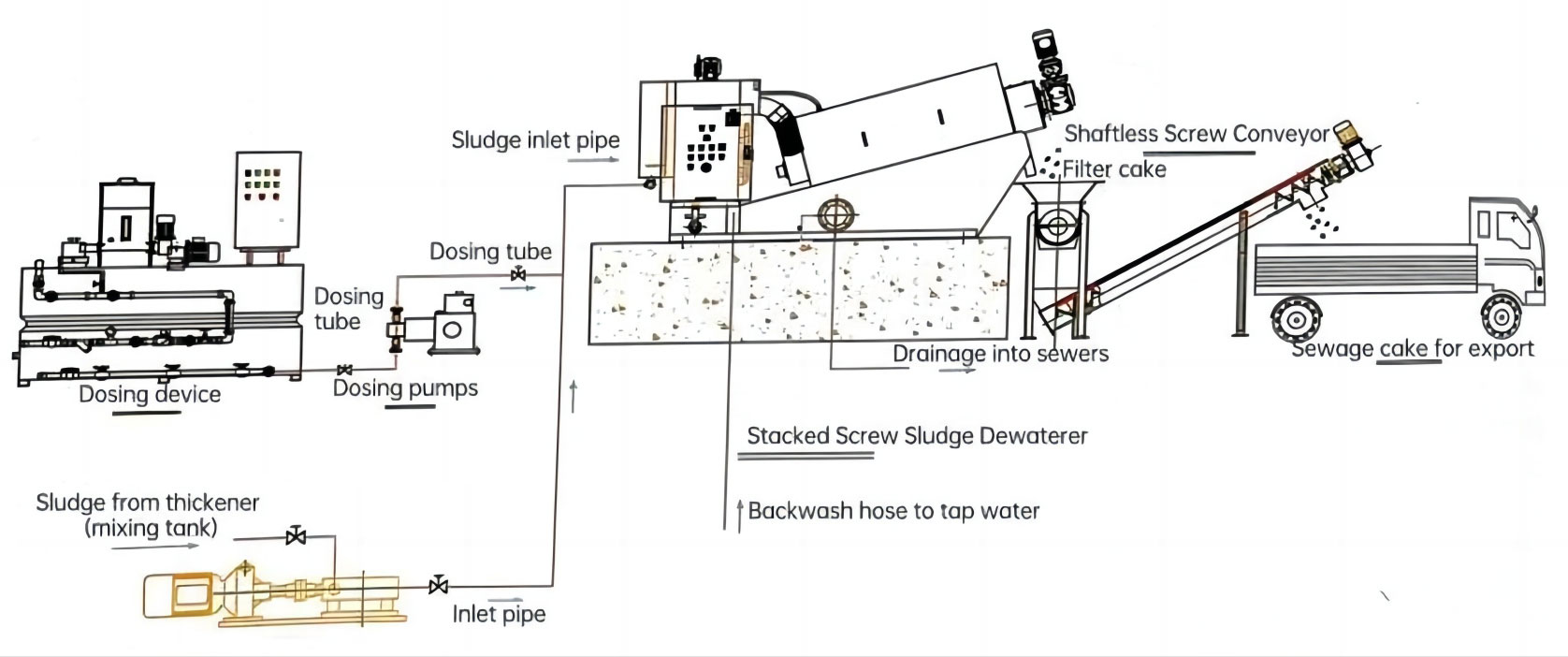Revolutionizing Construction
Innovative Applications of Sludge Dewatering Machines in Building Projects
In the construction sector, technological advancements are changing traditional methods. One of the most anticipated innovations is the use of sludge dehydrators in construction projects.Sludge, a byproduct of various industrial processes, has conventionally been viewed as waste. However, with the advent of sludge dewatering machines, this seemingly unwanted material is finding new applications in the construction industry. This article explores the innovative uses of sludge dewatering machines and their impact on building projects.
Understanding Sludge Dewatering:
Before delving into its applications, it’s crucial to grasp the concept of sludge dewatering. Sludge is a semi-solid residue generated during wastewater treatment or industrial processes. Traditionally, disposing of sludge was a significant challenge due to its high water content. However, sludge dewatering machines have emerged as a game-changer by effectively removing water, transforming sludge into a manageable and resourceful material.
Soil Stabilization:
One of the innovative applications of sludge dewatering machines in building projects is soil stabilization. Mixing washed mortar with soil can improve structural integrity and load capacity.This technique is particularly beneficial in areas with weak or unstable soils, providing a cost-effective solution for construction projects in challenging terrains.
Bricks and Construction Blocks:
Dry mortar can be used to make bricks and building stones. By incorporating sludge into the manufacturing process, builders can reduce their reliance on traditional raw materials like clay and sand. This not only minimizes the environmental impact but also promotes sustainable building practices.

Land Reclamation:
Sludge dewatering plays an important role in land restoration. The dewatered sludge, with its improved consistency and reduced volume, can be utilized to reclaim and rehabilitate degraded land. This application is particularly relevant in urban areas where space for construction is limited, prompting the need for creative solutions to repurpose unused or abandoned land.
Road Construction:
In road construction, the stabilized sludge can be employed as a binding agent for asphalt or road base materials.It not only improves the durability and strength of roads, but is also a cost-effective replacement for traditional additives.The use of dry sludge in road construction reflects the industry’s interest in sustainable development and increased resource efficiency.
Green Roofs and Landscape Design:
Dewatered sludge proves valuable in creating green roofs and sustainable landscape designs.Clay solution can combine with soil substrate to increase water resistance and nutritional efficiency of plants.Green roofs, in particular, benefit from the improved water management properties of sludge, contributing to the overall sustainability of the building.
Concrete Production:
The construction industry heavily relies on concrete, and sludge dewatering machines have found a place in optimizing concrete production. The dewatered sludge can be used as a supplementary cementitious material, reducing the environmental impact of concrete manufacturing and improving its performance characteristics.
Thermal Insulation:
In an innovative way, dried sludge can be used as a building material.When processed and treated, sludge can exhibit thermal insulation properties, providing an eco-friendly alternative to conventional insulation materials. This application not only enhances energy efficiency in buildings but also addresses the challenge of waste disposal.
The innovative applications of sludge dewatering machines in building projects are transforming the construction industry’s approach to waste management and resource utilization. From soil stabilization to thermal insulation, sludge is proving to be a versatile and valuable material in sustainable construction practices. As technology continues to advance, the integration of sludge dewatering machines is likely to become more widespread, ushering in a new era of eco-friendly and resource-efficient building projects.






